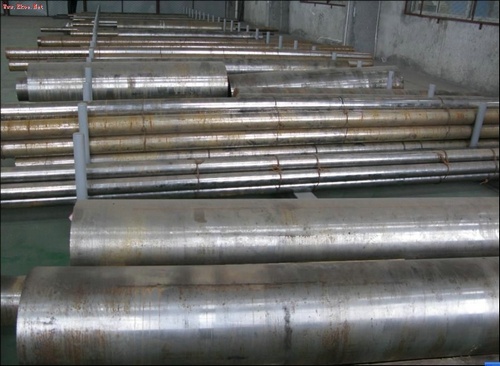
characteristic:
W.Nr.2.4602 has good resistance to pitting corrosion, crevice corrosion and stress corrosion cracking. It has excellent resistance to oxidizing aqueous media, including wet chlorine, nitric acid, or mixed acids of oxidizing acids containing chloride ions. At the same time, W.Nr.2.4602 also has the ideal ability to resist the reducing and oxidizing environments encountered during the process. Relying on this versatile performance, it can be used in some headache environments, or applied in a variety of production purpose factories. W.Nr.2.4602 has abnormal resistance to various chemical environments, including strong oxidizing substances such as ferric chloride, copper chloride, chlorine, thermally contaminated solutions (organic and inorganic), formic acid, acetic acid, acetic anhydride Seawater and salt solutions. W.Nr.2.4602 has the ability to resist the formation of grain boundary precipitation in the welding heat affected zone, so that it can also be adapted to the application of many chemical processes in the welding state
W.Nr.2.4602 chemical composition:
|
% |
Ni |
Cr |
Mo |
W |
C |
Mn |
Si |
P |
S |
|
Min. |
margin |
20.0 |
12.5 |
2.5 |
|
|
|
|
|
|
Max. |
22.0 |
14.5 |
3.5 |
0.015 |
0.50 |
0.08 |
0.02 |
0.02 |
W.Nr.2.4602 physical properties:
|
Density |
8.9 g / cm3 |
|
Melting point |
1325-1370 ℃ |
W.Nr.2.4602 The minimum mechanical properties of the alloy at room temperature:
|
tensile strength Rm N/mm2 |
yield strength RP0.2N/mm2 |
Elongation A5 % |
|
690 |
283 |
40 |
Metallurgical structure of W.Nr.2.4602:
W.Nr.2.4602 has a face-centered cubic lattice structure.
W.Nr.2.4602corrosion resistance:
W.Nr.2.4602 alloy is suitable for a variety of chemical process industries containing oxidizing and reducing media. The higher molybdenum and chromium content makes the alloy resistant to chloride ion attack, and the tungsten element further improves its corrosion resistance.W.Nr.2.4602 is one of the only materials that can resist the corrosion of damp chlorine, hypochlorite and chlorine dioxide solutions. The alloy has significant corrosion resistance to high-concentration chloride solutions (such as ferric chloride and Copper chloride).
W.Nr.2.4602 application areas are:
W.Nr.2.4602 alloy has been widely used in chemical and petrochemical fields, such as in components and catalytic systems exposed to chloride-containing organics. This material is particularly suitable for use in high temperature, mixed inorganic and organic acids (such as formic acid and acetic acid), and seawater corrosive environments.
W.Nr.2.4602 Other application areas:
1.Acetic acid / acetic anhydride
2. Pickling
3. Cellophane manufacturing
4.Chlorination system
5. Complex mixed acids
6.Electro-galvanized roller
7. Expansion bellows
8. Flue gas cleaner system
9. Geothermal well
10. Hydrogen fluoride furnace cleaner
11.Incinerator cleaner system
12. Nuclear fuel regeneration
13. Insecticide production
14. Phosphoric acid production
15. Pickling system
16. Plate heat exchanger
17.Selective filtering system
18.Sulfur dioxide cooling tower
19.sulfonation system
20.Tube heat exchanger
21. Surfacing Valve
Special alloy materials commonly used in the chemical industry:
Stainless steel: 253MA, 316L, 353MA, 654SMO, 904L, etc.
Nickel-based alloys: Alloy 31, Alloy 59, Hastelloy B, Hastelloy C, Hastelloy C-276, etc.
Corrosion-resistant alloys: NS112, NS322, NS333, NS335
Shenzhen Zhengjie Metal Material Co., Ltd.
Contact person: Mr. Huang (13480167607)
Sales Hotline: 0755-81718772
Q Q: 2263040115 305084123
Website: www.szzj168.com
Email: 2263040115@qq.com
Address: No. 8, Songzi Park, Minzhi, Longhua New District,Shenzhen